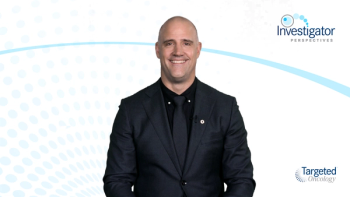
Future Directions in Systemic Treatment of HCC
Richard S. Finn, MD concludes the discussion by commenting on areas of unmet need in the care of HCC and emphasizes the potential impact of trials studying treatment combination and sequencing.
Episodes in this series
Richard S. Finn, MD: One of the important issues moving ahead, and I commented on this earlier in the transition to systemic treatment. Now that we have regimens that are inducing objective responses, with a significant survival benefit. And again, we saw at ASCO this year that those who have an objective response or stable disease, versus those who have progressive disease, the hazard ratio is very low, around 0.2, 0.3 range. Indicating that these patients have a very good prognosis with systemic treatment. And the responders, do better than even those that have stable disease. Now, given those types of data and evolving data with checkpoint inhibitors and TKIs, it's important to keep in mind that continuing to do local regional treatment when patients have disease progression, the local regional treatment, may be detrimental. Because we risk them developing a worsening decompensation before they get exposed to systemic treatments. And again, that's very important for us to stay involved with our patients early on. There was some data again, from a center in Asia presented at ASCO GI that looked at early introduction of lenvatinib after chemoembolization, versus later on after patients have completed chemoembolization. And those who had earlier introduction of systemic treatment with lenvatinib tended to do better than those that had a late introduction. And there's several clinical trials looking at these questions, looking at immune checkpoint inhibitors, either as single agents or in combination with bevacizumab or with lenvatinib in combination with taste intermediate disease. And these phase three studies are ongoing. These are important questions to ask. There are also ongoing studies looking at these combinations in the regiment setting, introducing immune checkpoint inhibitors, either a single agent or in combination with bevacizumab or TKIs, after resection or curative ablation. And we're waiting for several phase three studies in the frontline setting, to readout. As mentioned lenvatinib and pembrolizumab, as well as to I/O-I/O combinations, durvalumab and tremelimumab, as well as ipilimumab and nivolumab. Those studies are looking at I/O-I/O combinations versus TKIs in the frontline setting. And they've completed approval and we're waiting for events. And so, it's a very exciting time in liver cancer. Potentially, we'll have further frontline options besides the ones we discussed.
One of the large unmet needs now is what do we do in second line, now that I/O went to the frontline setting? For patients who get AtezoBev, we don't have prospective data on the activity of all the drugs we have approved, today. Many of us will sequence the available drugs based on how they were approved. So for example, a patient gets AtezoBev front line. These patients might get frontline TKI such as lenvatinib or sorafenib. And then at progression, go on to receive any of the second line approved drugs, such as regorafenib or cabozantinib, they have at high AFP. Ramucirumab might be an option as well. I don't think single-agent I/O will be used that often, after frontline AtezoBev. But again, not every patient get AtezoBev in the frontline. And for those patients who do get lenvatinib or sorafetinib then, single-agent I/O may be an option of progression. So a lot of data has been generated, in the past few years that has changed our management plans. And there are a lot of data yet to be seen from completed phase three studies, and then a lot of molecules in early development for this very serious disease that still has unmet needs. So, thank you very much for your attention. I hope you found this helpful.
This transcript has been edited for clarity.









































